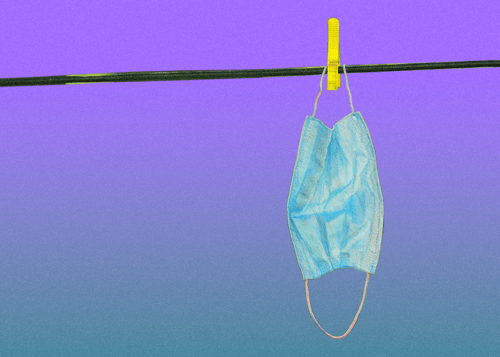
Mpox makes a comeback
Mpox is a viral disease spread through the monkeypox virus. Common in Central and Western Africa since the 1970s, mpox spreads mainly through contact with infected animals, sexual transmission and close contact in households.
The WHO's declaration of a global emergency is the highest warning the organisation can issue to encourage countries to begin preparations for the virus's spread and to coordinate the sharing of vaccines.
The new outbreak
The recent major outbreak of mpox in the Democratic Republic of Congo already claimed more than 470 deaths in the country this year. A new mutated strain of mpox was detected in the outbreak.
The new strain of mpox is more severe than the version of the virus that broke out in 2022, which also prompted the WHO to declare a global emergency.
The current variant has a mortality rate of approximately 3%, compared with a mortality rate of 0.2% in 2022. The first outbreak affected 100,000 people worldwide and spread mainly through male-to-male sexual contact.
Now the virus spreads through all sexual transmission and close contact within households.
However, because mpox is a DNA virus, its contagiousness is not comparable with that of Covid-19, which is an RNA virus. DNA viruses mutate less frequently than RNA viruses, which is why we have observed only two versions of mpox so far, in contrast with the approximately 27 variants of Covid-19.
European patient zero
After the first case outside of Africa was detected in Sweden last week, the European Centre for Disease Prevention and Control (ECDC) released a risk assessmentstating that it's ”highly likely” that Europe will experience more cases and countries should prepare accordingly.
The organisation also stated that the ”overall risk for the EU/European Economic Area general population is currently assessed as low” given that cases are ”diagnosed quickly and measures are taken to control them”. The ECDC recommendsmore testing, contact tracing, and travel advice to European populations visiting affected areas.
The vaccine
In contrast to the Covid-19 outbreak, a vaccine against mpox existed before this outbreak. Currently, the only company that has an EU-approved mpox vaccine is Bavarian Nordic. Several EU member states have stockpiles of the vaccine. Globally, two more vaccines against mpox are approved in Japan and the United States.
So, should you get vaccinated? The World Health Organisation doesn’t recommend a mass vaccination programme like during Covid-19 yet. Access to vaccinations should be prioritised for risk groups and regions that are more significantly affected at the moment.
Global health emergency
Bavarian Nordic stated it can sell 10 million doses of its mpox vaccine to African countries by the end of 2025, but is missing orders. The company has, in collaboration with the European Commission, donated more than 200,000 doses to African countries since the outbreak this year.
The African Union and WHO provided about $11.4 million to the African Centre for Disease Control (ACDC), but the costs go beyond buying vaccines. Lacking personnel and medical infrastructure will make it a difficult task to contain the virus without international solidarity.
Hard learner
The EU's virus preparedness has been a general debate since the outbreak of Covid-19 over four years ago. As The European Correspondent wrote in a recent piece, the EU did learn from the pandemic but is still far from being well prepared. There still remains a lot of work to be done, and it remains to be seen if the new version of mpox will serve as another wake-up call.